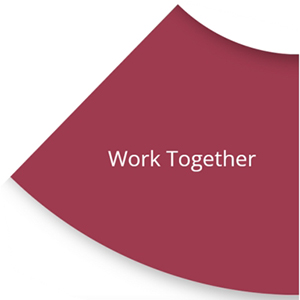 Work Together
Work Together
The older person is the centre of care. By working together, the family, aged care service, GP, nurses, care workers and allied health professional(s) can deliver the best care for the person. Specialist palliative care may also have a role to play.
As the health of an older person changes, the team and their roles may change to suit that person’s needs. The team should be able to work together across all care settings: from home, to hospital, to aged care.
Key aspects for working together
-
Good shared care
-
Shared care across different settings
-
Sharing information
Having the whole team on the ‘same page’ is essential for shared care. This will rely on good communication between team members. A strong team care approach will make sure care is given at the right time and in the right place.
Good shared care looks like:
- cohesive decision-making
- clear and timely communication between clinicians
- less burden and cost to the person, that might be caused by many settings of care
- less confusion for the person and their family e.g., emergency contacts
- a plan for emergency care.
Shared care can often be with team members across different settings with different health systems. It is good practice to support older adults to plan ahead, e.g.:
- if an ambulance must be called
- if going into hospital
- when meeting a new health team member
- when travelling away from home.
Information can be shared in the following ways:
- My Health Record. This is valuable for people who have health team members in different settings.
- Paper records that the older person might have, such as health summaries and medicine lists.
- Advance care plans, describing substitute decision-makers, the persons’ wishes and who to contact in an emergency.
- Case conferences.
- Training can help healthcare professionals and aged care staff to improve their knowledge and confidence in ACP discussions.
- Education resources include online courses, workshops, webinars, and information sessions.
Paramedics have also been identified as having a key role to play in supporting end of life in aged care.
It is important for all team members to understand their role in shared care.